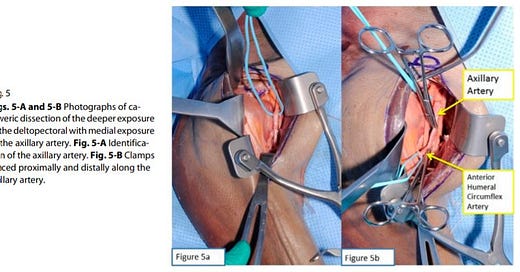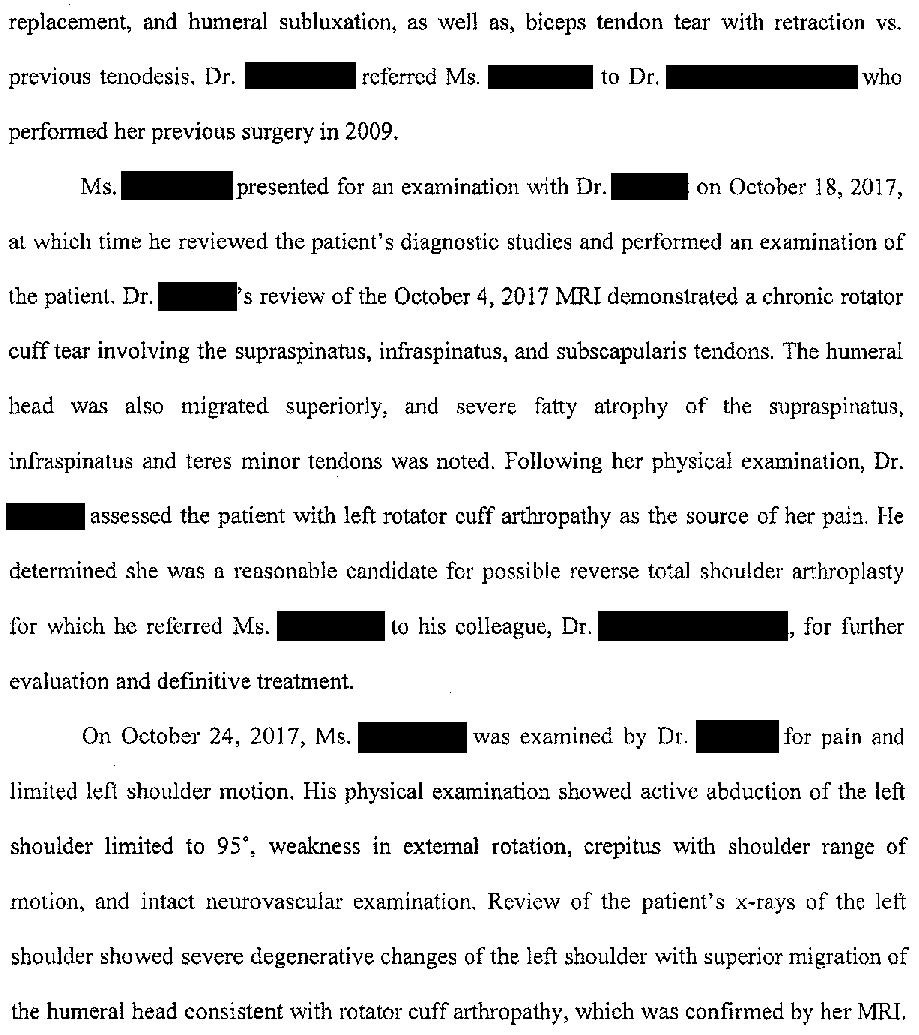A 74-year-old woman had been suffering from shoulder pain for years.
She initially presented to a PM&R physician, who recommended physical therapy.
He also ordered an MRI demonstrating a chronic rotator cuff tear.
The patient was referred to an orthopedic surgeon within the same office. He realized that one of his partners had operated on the same shoulder previously, and therefore passed her case back to the initial surgeon.
A left reverse total shoulder arthroplasty was recommended.
During the procedure, the surgeon encountered severe bleeding from the axillary artery.
A vascular surgeon was called to assist, and performed a bypass.
The patient now suffers from reduced motor and sensory function of the left arm.
Join 6200+ doctors and lawyers.
The plaintiffs hired an expert, who wrote the following opinion:
Pick up an annual subscription today.
Get access to the entire case archive and a new case each week.
The lawsuit was filed in October 2018.
In November 2020, the plaintiff offered to settle for $2 million.
It reached a confidential settlement in February 2021.
MedMalReviewer Analysis
This case provides a good opportunity to review axillary artery injuries, relevant to EM, primary care, trauma and others. About 1% of shoulder dislocations involve injury to the axillary artery as well. A useful overview paper can be found here: Evaluation and Management of the Axillary Artery Injury.
While the patient may have technically consented to taking the risk of this sort of injury, its not worth the expense and risk to litigate. Even if the surgeon was diligent and made no technical mistakes, only the outcome matters. The jury will not be sympathetic. Most unexpected surgical complications like this end up reaching a settlement.
This was the shortest lawsuit I’ve ever seen as measured by number of documents. There were only a total of 14 entries from summons to withdrawal of the lawsuit. Many malpractice cases involves hundreds of entries, especially if they go to trial.
If you get sued and it’s a straight forward case, you may think it will be over quickly. It won’t. Brace yourself for a multi-year process.
2 questions for any orthopedic surgeons in the audience:
Do orthopedic surgeons routinely obtain consent specifically for axillary artery injury?
How common is this complication?










1. I personally routinely include in my consent discussion, for arthroplasties, the rare risk of arterial injury. I don't know if everyone does since:
2. Albeit very severe, from what I've reviewed, the risk of iatrogenic axillary injury is definitely rare... here is a 2017 JBJS review on the subject.
https://journals.lww.com/jbjsreviews/fulltext/2017/06000/evaluation_and_management_of_axillary_artery.3.aspx
Surprised that the vascular surgeon told him to complete the arthroplasty. That extra hour or so of ischemia time was critical to her eventual poor outcome. The Orthopod did very little wrong. The vascular surgeon should be the one sued. Axillary artery injuries are infrequent during shoulder arthroplasty procedures, but I would not say that they are rare.